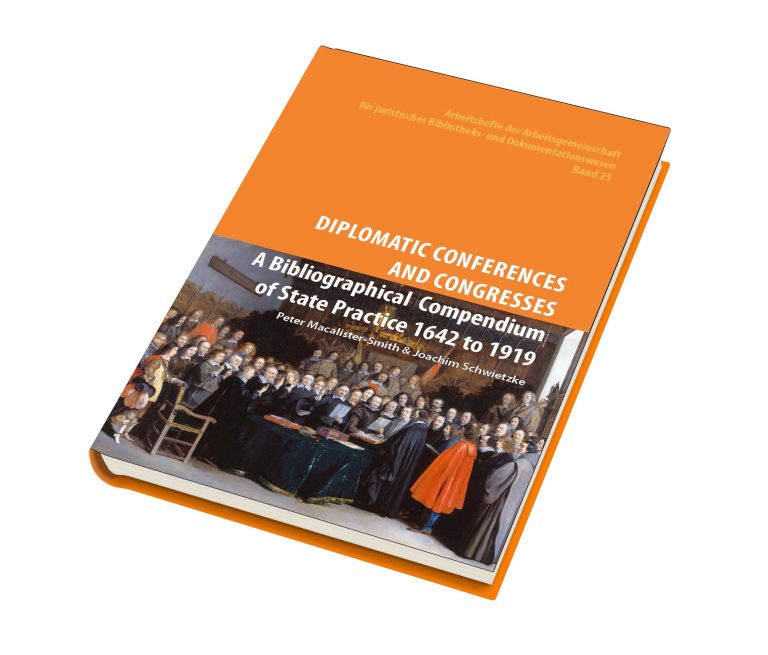"The conference “Historical Capitalism and International Law” will
take place on the 18th and 19th January 2018 at Sciences Po Law School,
Paris, as part of CIERA’s programme colloques juniors.
Young
scholars will explore the topic, underlining the particularities of
capitalism as a social construction embedding several economic, social,
political and cultural dimensions, all of which can be further
articulated through analysing the legal dimension.
Departing from the
material reality of capitalism to analyse its origins, functioning,
current challenges and the prospect of its potential future
developments, the conference will focus on the nature and evolution of
economic and social institutions, their role in the exchanges and
movement of peoples, ideas and commodities, as well as the way through
which encounters, confrontations and interactions have shaped them in
turn.
The Conference will be held in Sciences Po Paris on the 18 and 19 January 2018."
For more details see: http://www.sfdi.org/en/actualites/sciences-po-paris-conference-historical-capitalism-and-international-law/
Website of the European Society of International Law's Interest Group on the History of International Law.
ESIL Interest Group History of International Law

Tuesday, 16 January 2018
Monday, 15 January 2018
ARTICLE: James CRAWFORD, The Current Political Discourse Concerning International Law (Modern Law Review LXXXI (2018), no. 1 (January), pp. 1-22)

(image source: Pinterest, man writing)
James Crawford (Judge, International Court of Justice) published "The Current Political Discourse Concerning International Law", which appeared in the Modern Law Review LXXXI (2018), No. 1:
Abstract:
Reading current statements of world leaders on subjects relevant to international law is liable to cause confusion, even distress to those for whom the 1945 regulatory arrangements, as completed in the post-Cold War era, have become the norm. On occasions international law is invoked, but in what seems an increasingly antagonistic way, amounting often to a dialogue of the deaf. At other times it is apparently or even transparently ignored. This touches many of the arrangements governments spent the preceding period seeking to establish. Is there a pattern to all this, and how should we respond? How susceptible is the edifice of international law to such rhetoric? These issues are examined in the context of the law of withdrawal from treaties. Three recent high profile examples are examined: Brexit, South Africa's purported withdrawal from the Rome Statute, and the United States’ announced withdrawal from the Paris Agreement.
Source: International Law Reporter.
More information here.
Labels:
article
BOOK: Eirik BJORGE and Cameron A. MILES, (eds.), Landmark cases in Public International Law (Oxford: Hart Publishing, 2017). £120.00. ISBN 9781849467889
(Source: Hart Publishing)
Hart Publishing has published a book last month on some of the landmark cases in international law over the past 200 years:
ABOUT
The past two hundred years have seen the transformation of public international law from a rule-based extrusion of diplomacy into a fully-fledged legal system. Landmark Cases in Public International Law examines decisions that have contributed to the development of international law into an integrated whole, whilst also creating specialised sub-systems that stand alone as units of analysis. The significance of these decisions is not taken for granted, with contributors critically interrogating the cases to determine if their reputation as 'landmarks' is deserved. Emphasis is also placed on seeing each case as a diplomatic artefact, highlighting that international law, while unquestionably a legal system, remains reliant on the practice and consent of states as the prime movers of development.
The cases selected cover a broad range of subject areas including state immunity, human rights, the environment, trade and investment, international organisations, international courts and tribunals, the laws of war, international crimes, and the interface between international and municipal legal systems. A wide array of international and domestic courts are also considered, from the International Court of Justice to the European Court of Human Rights, World Trade Organization Appellate Body, US Supreme Court and other adjudicative bodies. The result is a three-dimensional picture of international law: what it was, what it is, and what it might yet become.
The cases selected cover a broad range of subject areas including state immunity, human rights, the environment, trade and investment, international organisations, international courts and tribunals, the laws of war, international crimes, and the interface between international and municipal legal systems. A wide array of international and domestic courts are also considered, from the International Court of Justice to the European Court of Human Rights, World Trade Organization Appellate Body, US Supreme Court and other adjudicative bodies. The result is a three-dimensional picture of international law: what it was, what it is, and what it might yet become.
TABLE OF CONTENTS
1. Introduction
Eirik Bjorge and Cameron Miles
2. The Charming Betsy and The Paquete Habana (1804 and 1900)
William S Dodge
3. Mavrommatis Palestine Concessions (Greece v Great Britain) (1924–27)
Michael Waibel
4. Factory at Chorzów (Germany v Poland) (1927–28)
Chester Brown
5. SS Lotus (France v Turkey) (1927)
Douglas Guilfoyle
6. Island of Palmas (Netherlands v United States of America) (1928)
Eirik Bjorge
7. Legal Status of Eastern Greenland (Denmark v Norway) (1933)
Rolf Einar Fife
8. Trail Smelter (United States of America/Canada) (1938 and 1941)
Duncan French
9. Trial Before the International Military Tribunal at Nuremberg (1945–46)
Katherine O'Byrne and Philippe Sands
10. The Early United Nations Advisory Opinions (1948–62)
Thomas D Grant and Rowan Nicholson
11. The South West Africa Cases (1949 to 1971)
James Crawford and Paul Mertenskötter
12. North Sea Continental Shelf (Federal Republic of Germany v Netherlands; Federal Republic of Germany v Denmark) (1969)
Nikiforos Panagis and Antonios Tzanakopoulos
13. Barcelona Traction, Light and Power Company (Belgium v Spain) (1970)
Giorgio Gaja
14. Tyrer v United Kingdom (1978)
Nigel Rodley
15. Military and Paramilitary Activities in and against Nicaragua (Nicaragua v United States of America) (1984 to 1986)
Robert Kolb
16. Tadic v Prosecutor (1995)
Sarah MH Nouwen and Michael A Becker
17. The Nuclear Weapons Advisory Opinions (1996)
Surabhi Ranganathan
18. Gabcíkovo-Nagymaros Project (Hungary/Slovakia) (1997)
Laurence Boisson de Chazournes and Makane Moïse Mbengue
19. Vivendi v Argentina (1997–2010)
Sam Luttrell
20. US-Import Prohibition of Certain Shrimp and Shrimp Products (1998)
Callum Musto and Catherine Redgwell
21. LaGrand (Germany v United States of America) (2001)
Cameron Miles
22. Legal Consequences of the Construction of a Wall in the Occupied Palestinian Territory (2004)
John Dugard
23. Jurisdictional Immunities of the State (Germany v Italy;Greece intervening) (2012)
Omri Sender and Michael Wood
Friday, 12 January 2018
BOOK: Peter MACALISTER-SMITH & Joachim SCHWIETZKE,Diplomatic Conferences and Congresses. A Bibliographical Compendium of State Practice 1642 to 1919 [Arbeitshefte der Arbeitsgemeinschaft für juristisches Bibliotheks- und Dokumentationswesen 25] (Graz: Neugebauer Verlag), 2017, ISBN 978-3-85376-325-4, €29,58
(image source: Neugebauer Verlag)
Abstract:
A survey of diplomatic conferences and congresses convened worldwide from 1642 to 1919 with extensive references to their published documents. Includes additionally a synopsis of the resulting acts, agreements, conventions, declarations and other instruments adopted by the states participating in each conference or congress.On the authors:
The meetings of the conferences and congresses are arranged thematically in 111 groups starting at Münster and Osnabrück to prepare the Peace of Westphalia. In total 280 conferences and congresses are recorded. Over one third of the conferences and congresses were held from 1827 to 1919 at London and Paris. Other leading cities in order of diminishing frequency were Brussels, Bern, The Hague, Berlin, Istanbul, Washington and Vienna. The compendium closes with the peace of Brest-Litovsk (1917) and the Inter-Allied Conference of the Powers held in Paris and environs from 1919 to 1920. The Latin American and Pan American congresses are well represented, for example at Buenos Aires, Guatemala, Lima, Managua, Mexico, Montevideo, Panama, Rio de Janeiro, San José, San Salvador, Santiago and Tegucigalpa. Annexes supply further information on the Versailles treaty with Germany and the Covenant of the League of Nations.
Joachim Schwietzke Library Director emeritus at the Max Planck Institute for Comparative Public Law and International Law, Heidelberg, Germany. Peter Macalister-Smith is known internationally as the assistant general editor of the consolidated library edition of the Encyclopedia of Public International Law (1992–2003) and as the principal editor at the Max Planck Institute for Comparative Public Law and International Law, Heidelberg, Germany, of the Journal of the History of International Law (2004–2015). Peter is a member of the editorial board of JUS GENTIUM, Journal of International Legal History, Talbot Publishing, Lawbook Exchange, Clark NJ, United States of America.
Table of contents here.
More information with the publisher.
(source: Legal History Blog)
Monday, 8 January 2018
ESIL CONFERENCE PRE-CONFERENCE CALL: Consumers or Producers of international law? Non-European experiences with the law of nations in comparative perspective (DEADLINE 15 MAR 2018)
(image source: Travelodge)
The path
from the European law of nations to a universal system of international law has
attracted wide scholarly attention in the past decade. A variety of approaches have
challenged the narrative of a European system that simply expands and covers
most of the planet in the late 19th century. For example, scholars identifying
with the TWAIL movement (Third world approaches to international law) have
criticized modern international law as a product of western imperialism and
colonialism. Building from this critique, other scholars have begun to ask how non-European
conceptions and influences shaped and re-formed the European law of nations on
its path towards becoming a global system. How can we read non-European
jurists, lawyers, state leaders and peoples as producers, not just consumers,
of international law?
Politicians,
lawyers and activists from non-European countries are now seen as more than
mere vessels through which the tradition of the European law of nations was
stamped into new contexts. Rather, scholars now explore the impact of local
elites in shaping the way international law was received into their regions. But
to what extent were they successful in shaping international law as a whole? We
need a stronger analytical framework to explore the broader picture and a more
precise understanding of how each region’s or nation’s encounter with
international law shaped both their own experience and aspects of the
international system.
The Interest Group for the
History of International Law wants to support this emerging interest in
contrasting and comparing regional experiences and invites scholars at every
stage of their career to share insights on any angle of these developments,
without geographic or temporal limitation.
Possible questions
include:
- What were the legacies of those regions and civilisations that had their own systems and traditions of law prior to the imperial encounter with Europe and its law of nations? Are there common patterns in how regional or imperial systems responded to their encounter with European international law, perhaps shaped by shared history, culture or religion, or was each experience specific and unique?
- If elements of Roman law or the European feudal order are recognized as precursors to features of modern international law, should extra-European legal systems be looked at in a similar way?
- Can we detect a difference between international legal doctrine and state practice in analyzing these encounters?
- What were the roles of specific fields of law, be it the acquisition or transfer of territory, the settlement of international disputes, the norms and expectations regarding the conduct of war and the conclusion of peace agreements, the legal status and experiences of foreign merchants, officials or travelers or the process of entering the emerging universal system of public and secret diplomacy?
Abstracts must be
submitted no later than 15 March 2018 to esilighil@gmail.com on behalf of the Steering Committee of the Interest
Group, which shall collectively supervise the blind peer-review process of the
abstracts. Applicants will be notified on the outcome of the selection process
by 30 March 2018.
Subscribe to:
Comments (Atom)


